Regional Food Strategy to Improve for Livelihoods and Social Cohesion
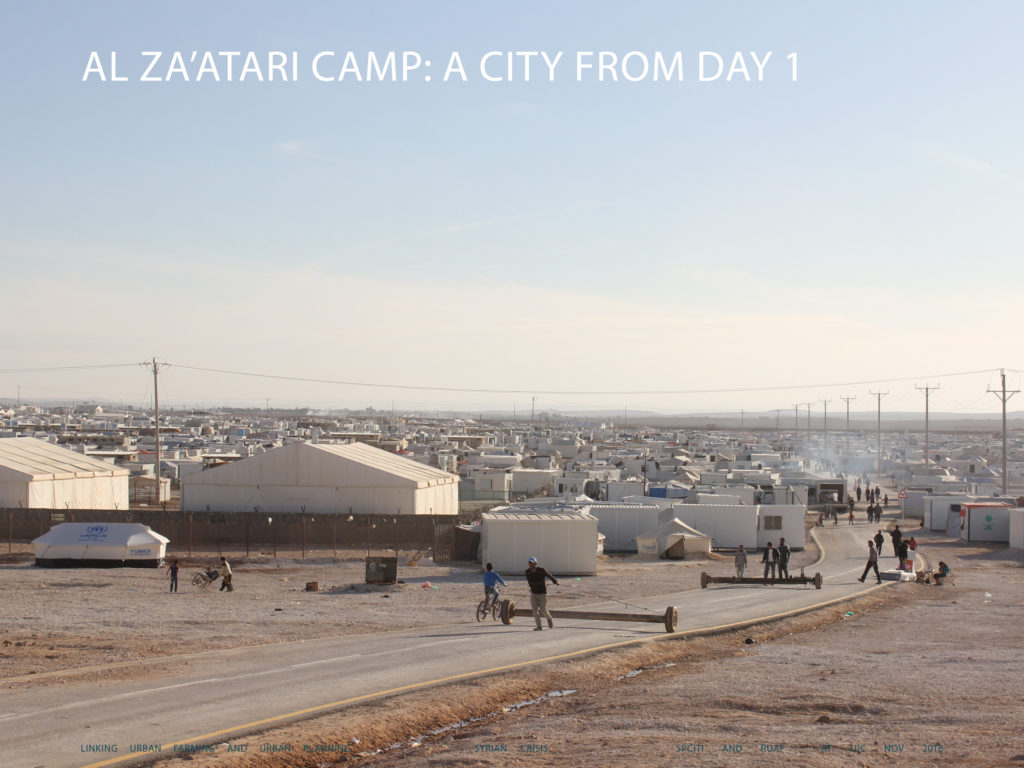
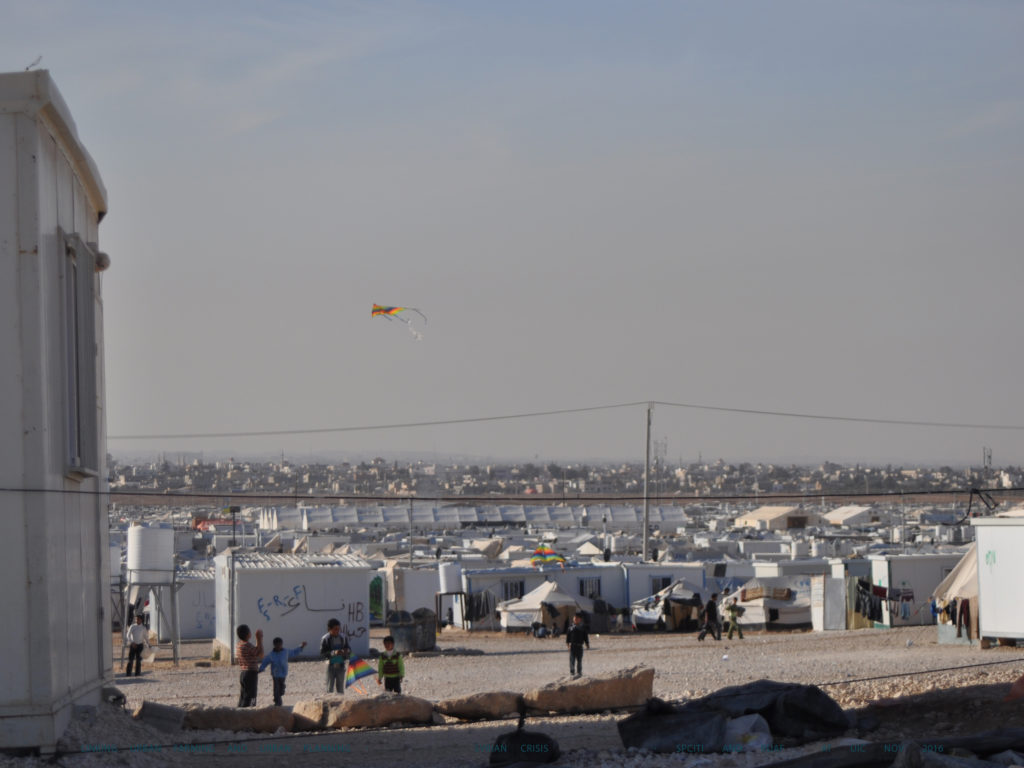
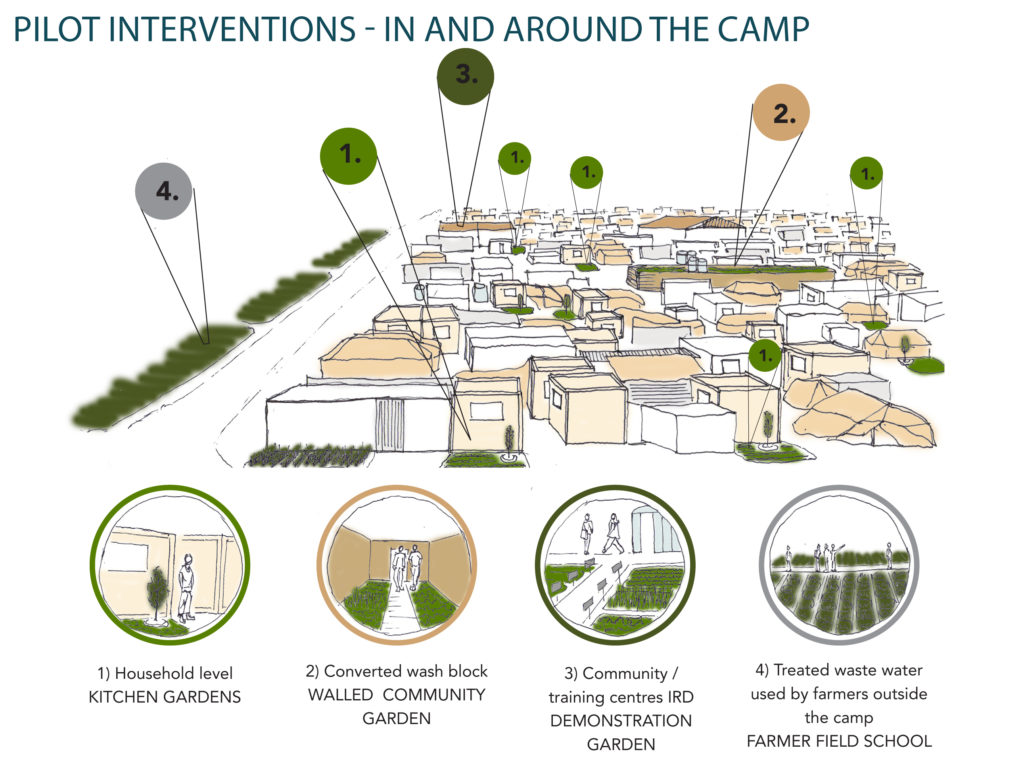
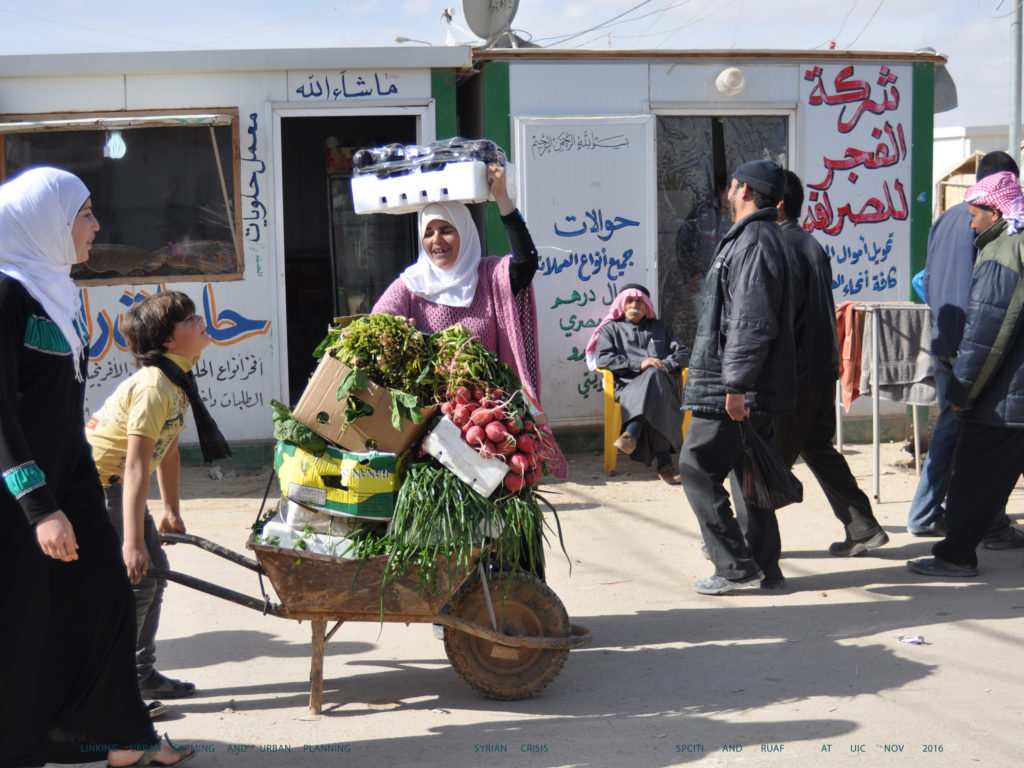
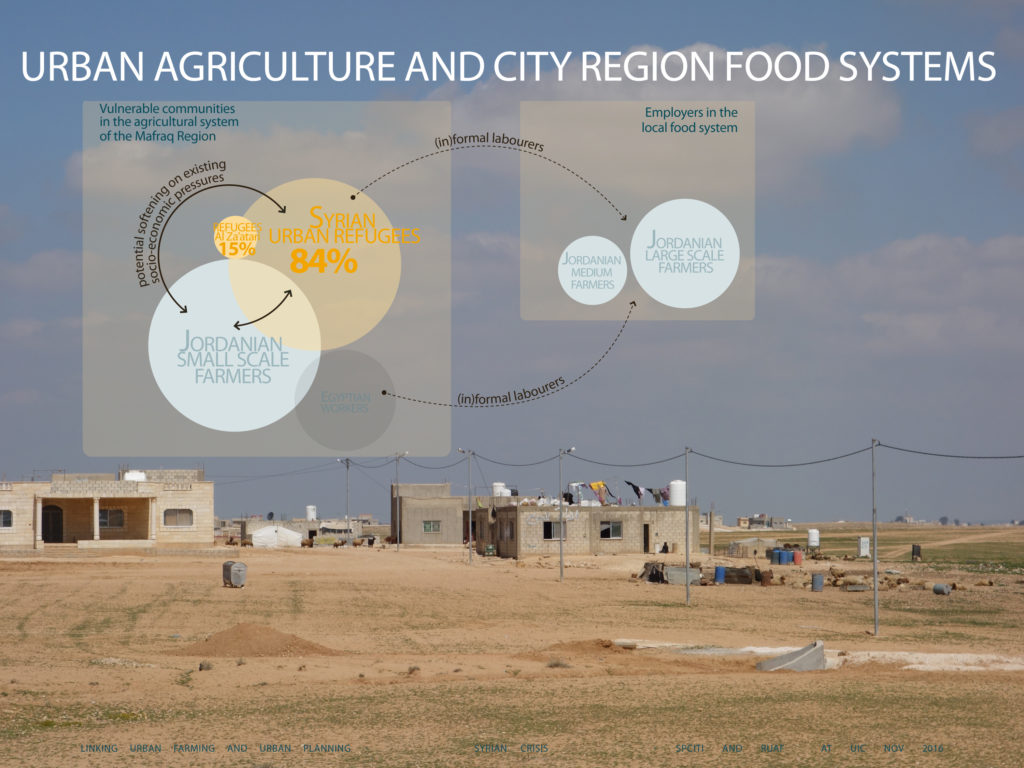
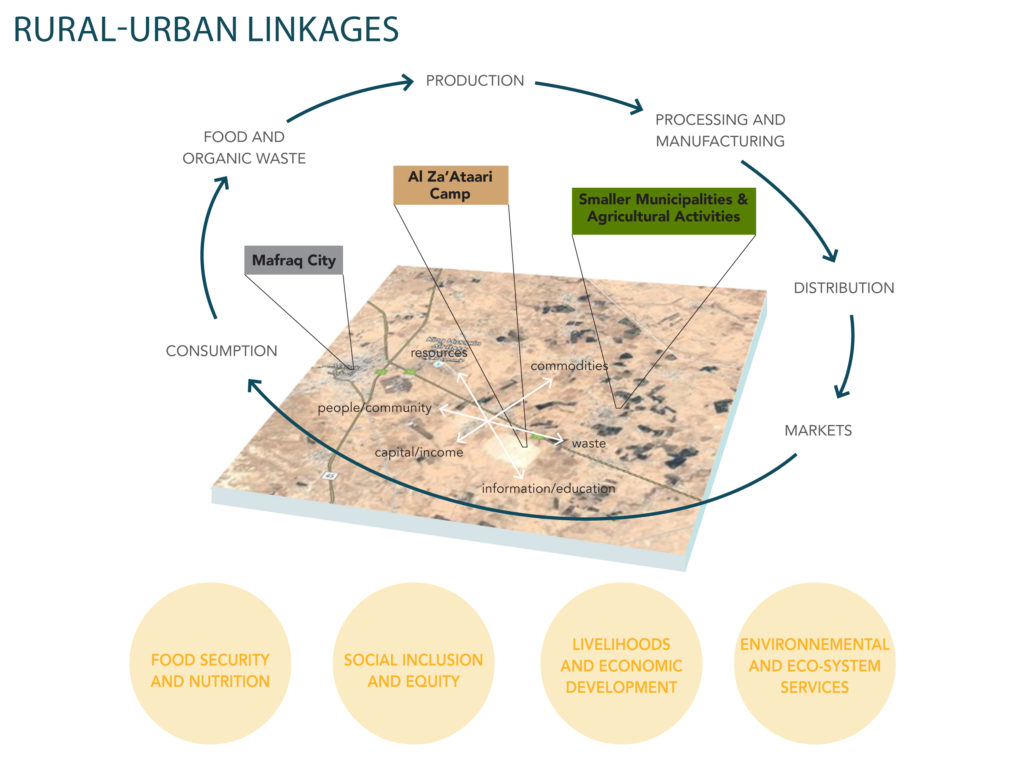 PROJECT
PROJECT
Mafraq Region, Jordan | 2015 – ongoing
The Syrian crisis has heavily affected both refugees and host communities in Jordan. The northern region of Jordan, where the Za’atari camp is located, has been especially facing significant challenges putting its ecosystem, resources and infrastructure under high pressure due to the massive influx of Syrian refugees. In few years local population has swollen drastically transcending the maximum capacity of local services and infrastructure. A large number of refugees, who fled the war in Syria, live in camps but an even larger number of them live within their host communities where they potentially have more opportunities to work, establish livelihoods and contribute to the local economy (though mostly informally).
Despite the previous osmotic dynamic between the two borders and the kinship between South Syrian and North Jordanians, social friction has risen. Food security and water scarcity are among the most basic issues.
In 2014, 2015 and 2016, SPCitI conducted, in partnership with RUAF (the International Network of Resource Centres on Urban Agriculture and Food Security Foundation), three consecutive scoping missions to study the feasibility of food based development strategies in the region of Mafraq.
The project addresses several scales of food production in the region. The first step consists in creating demonstration gardens inside the camp, and community gardens outside the camp, to provide training for both groups on small scale food production and processing. Ultimately, this initiative will contribute to improving food security and will create new economic prospects in the area.
Client:
VNGI and Gemeente Amsterdam (scoping missions)
Initiated by:
In collaboration with:
Phases:
- 2014 – 1st scoping mission
- 2015 – 2nd scoping mission
- 2016 – 3rd scoping mission
- 2017 – on going
For more pictures, check our Facebook album.
